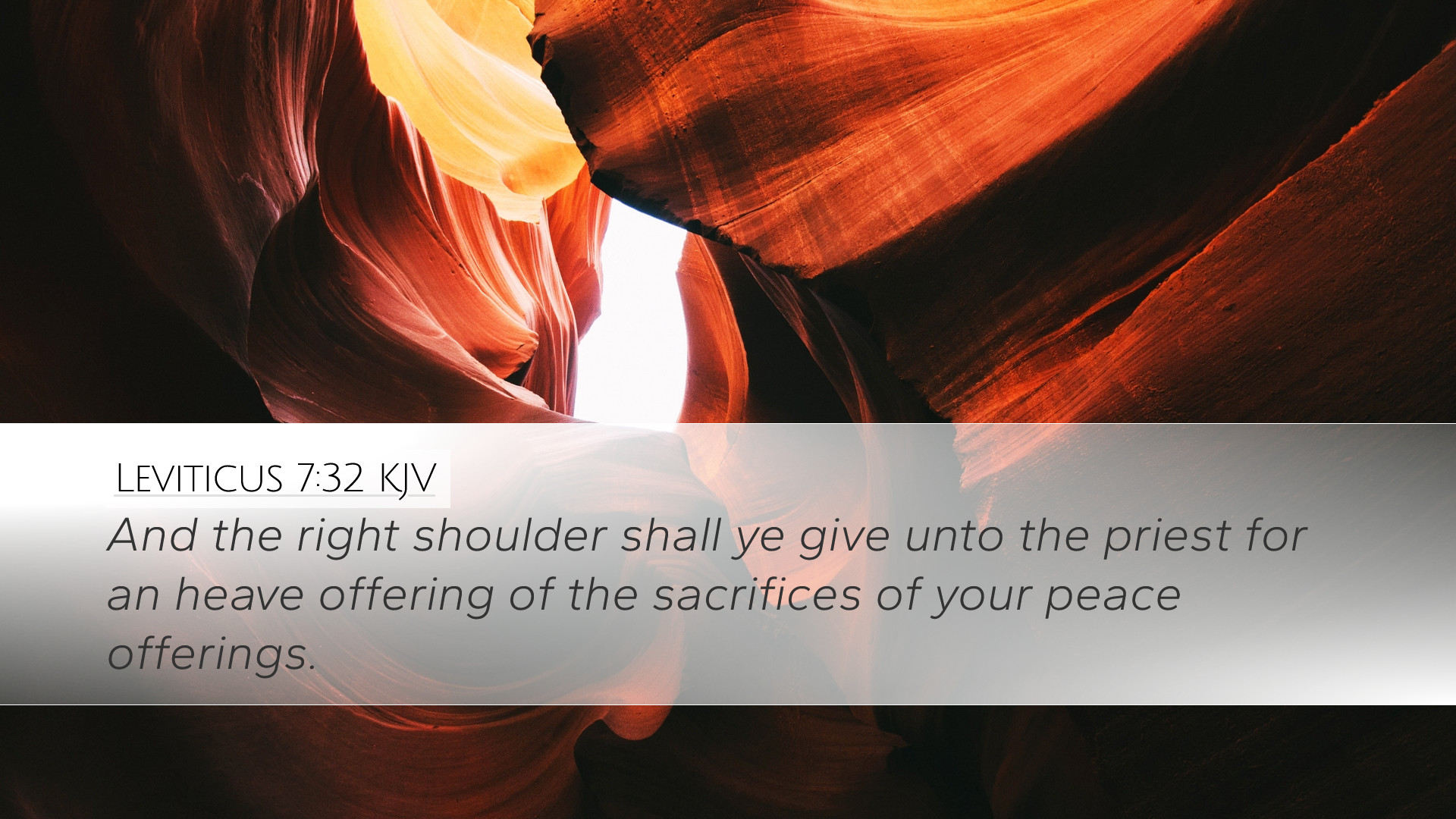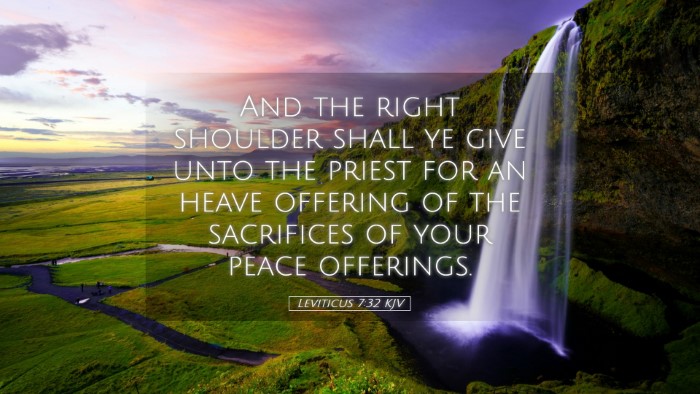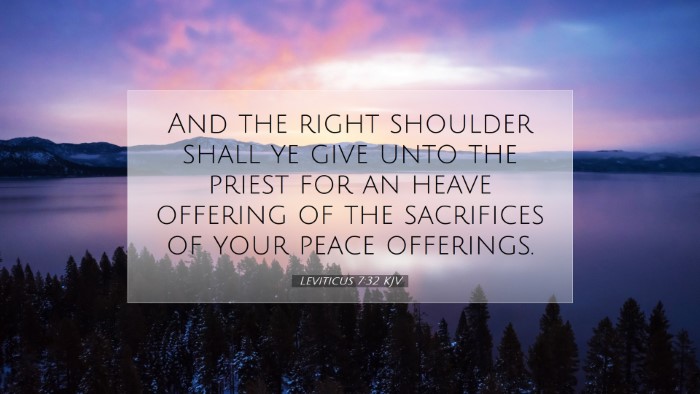Commentary on Leviticus 7:32
Leviticus 7:32 (KJV): "And the right shoulder shall ye give unto the priest for an heave offering of the sacrifices of your peace offerings."
Introduction
This verse from Leviticus addresses the offerings related to peace offerings, particularly focusing on what is designated for the priests. Peace offerings were a key part of worship in the Old Testament, symbolizing fellowship between God and His people, as well as with one another. Understanding this verse requires a careful examination of its context, purpose, and implications as interpreted by various commentators.
Contextual Background
The Book of Leviticus serves as a manual for the priests of Israel, detailing the laws concerning sacrifices, rituals, and the holiness of God. The peace offering, also known as the fellowship offering, was a voluntary offering that celebrated communion with God and could be shared among the worshipper, their family, and the priests.
Historical Significance
The right shoulder of the sacrificial animal is explicitly instructed to be given to the priest, indicating both a physical and spiritual connection between the worshipper and the divine order established by God. This practice served to provide for the priests and to affirm their role in mediating between God and the people.
Theological Insights
This verse provides rich theological reflections on sacrifice, provision, and the role of the priesthood. Below are key insights drawn from public domain commentaries:
-
Matthew Henry:
Henry emphasizes the importance of the peace offering as a means of expressing gratitude and joy in communion with God. The designation of the right shoulder as the priest's portion symbolizes the acceptance of the offering by God and reinforces the concept that God provides for those who serve Him.
-
Albert Barnes:
Barnes notes that the right shoulder was chosen due to its significance in ancient custom, representing strength and favor. He highlights that the heave offering reflects the concept of giving back to God a part of what He has blessed the worshipper with, indicating an acknowledgment of God's sustenance.
-
Adam Clarke:
Clarke expands on the role of the priests as representatives of God to the people and vice versa. He underscores that by sharing in the offerings, the priests act as mediators, and the offering itself becomes a means of maintaining a relationship with God. Clarke also draws parallels from this practice to the New Testament understanding of Jesus as the ultimate peace offering.
Practical Applications
For pastors, students, and theologians, this verse has several practical implications:
-
Understanding Sacrifice:
The peace offering points to the idea of relationship and communion rather than mere obligation. It encourages today’s believers to approach God not only out of duty but also from a place of joy and thanksgiving.
-
Role of the Priesthood:
In the New Covenant, all believers are seen as a royal priesthood. This scripture prompts reflection on how contemporary leadership within the church should operate, emphasizing care for spiritual and physical needs of the congregation.
-
Heave Offerings of Gratitude:
The principle of giving back to God what is entrusted to us remains relevant. This verse calls individuals to evaluate their stewardship of God’s blessings in both communal and personal contexts.
Conclusion
Leviticus 7:32 provides profound insights into the themes of sacrifice, priesthood, and gratitude. As outlined by notable commentators, the implications of the right shoulder offering extend beyond ritual observance to a deeper spiritual understanding of our relationship with God and with each other. Understanding the significance of such offerings can greatly enhance the faith practice and theological reflection of contemporary believers. By engaging with these ancient practices, modern worshippers can find a renewed sense of purpose and connection in their faith journeys.


